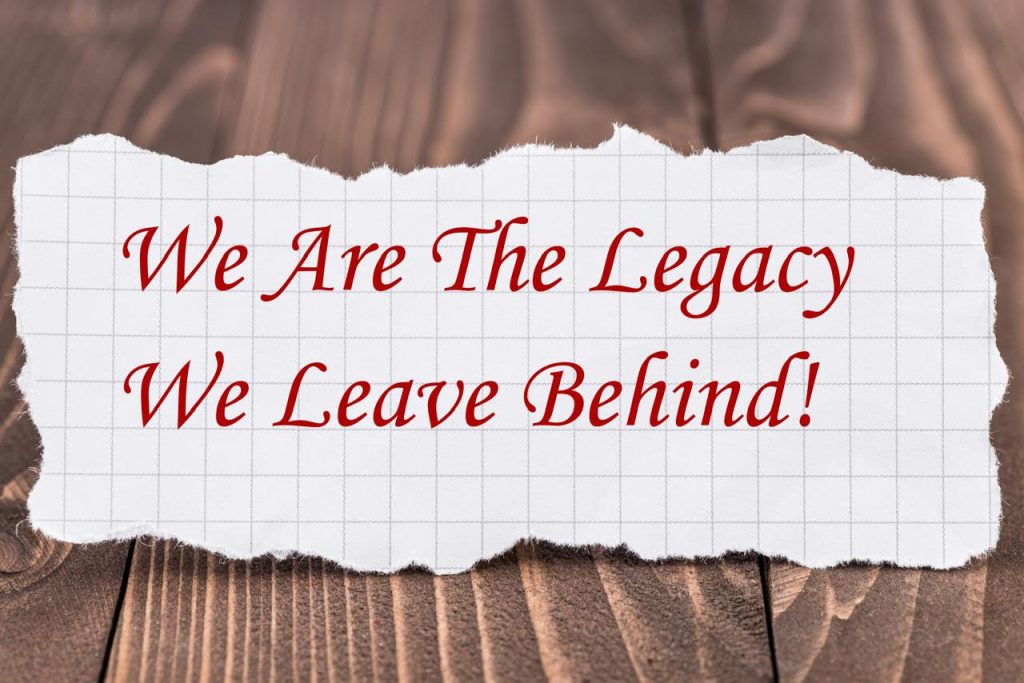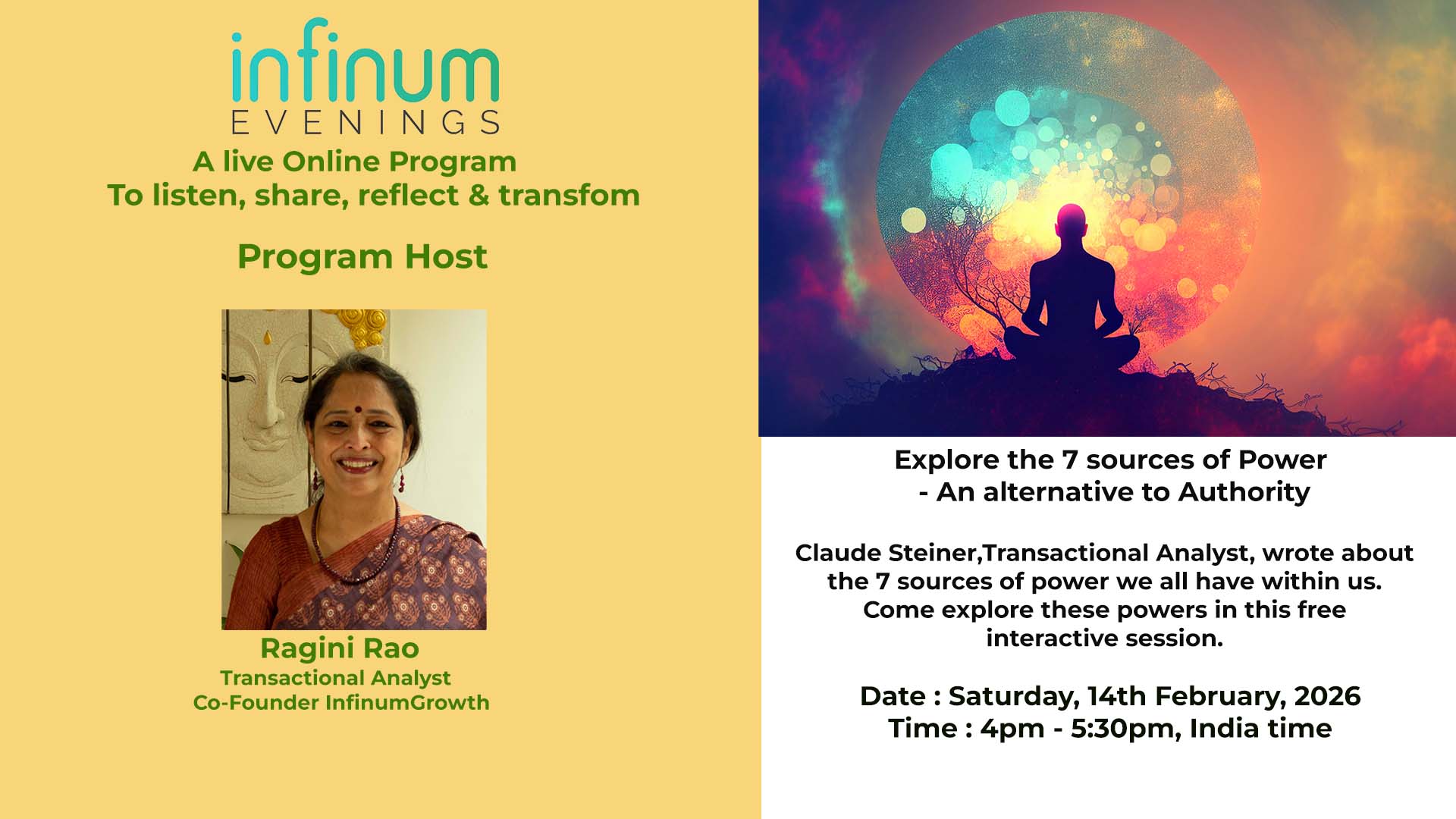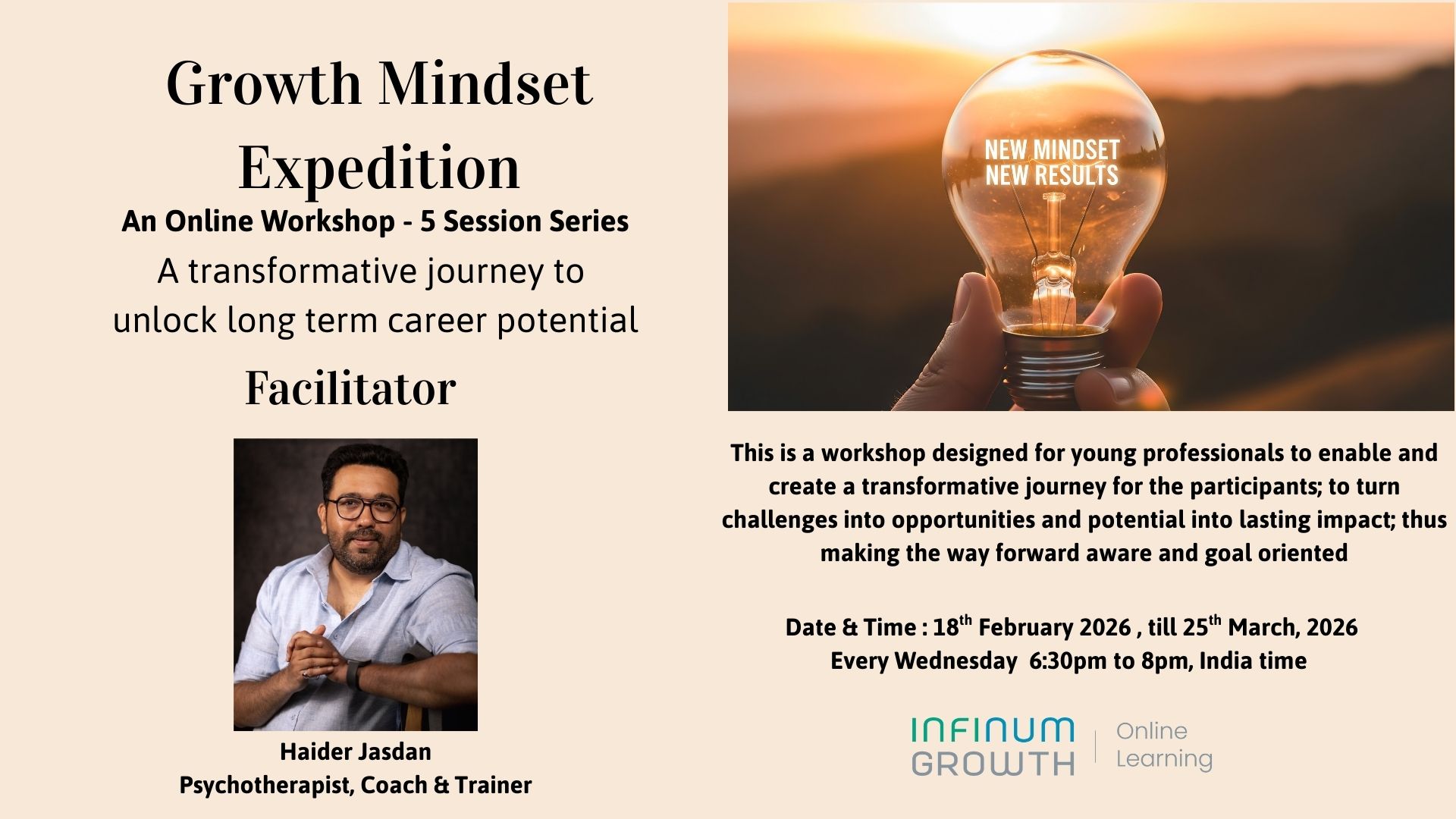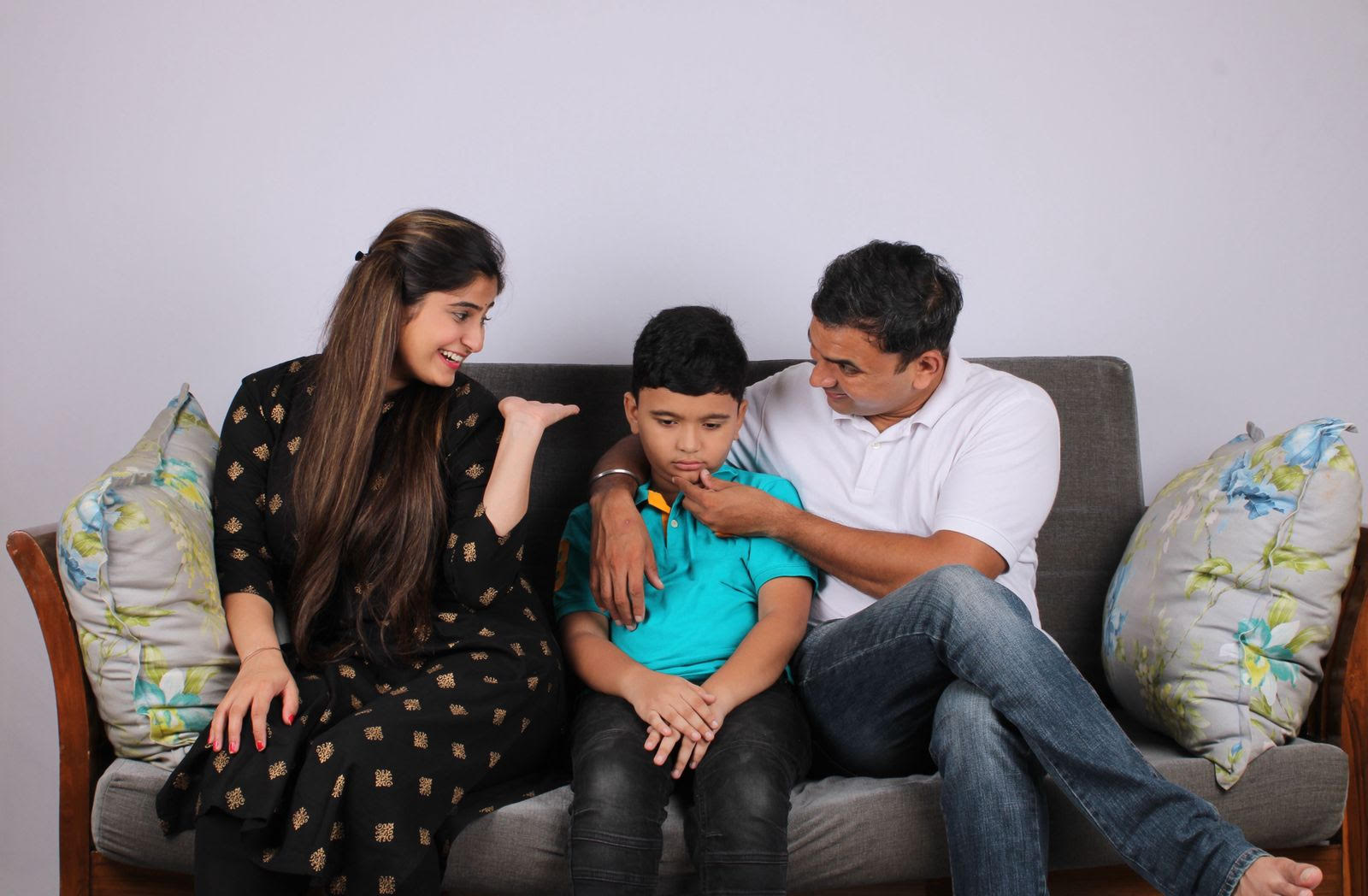“Who says legacy is only the material goods that we leave behind us? I am living and creating my legacy even at this moment. How I am interacting with everything around me, what memories I am creating right now, is all my legacy. So I am a pulsating energy bomb of legacy at all times,” said Natasha.
Whew! That was pretty intense. But interesting right? Makes one feel like an architect, “building and designing”, with thoughts, words, deeds and emotions. Powerful tools.
Let’s understand what all legacy can really mean.
Legacy in some of its avatars
Some different forms of legacy are –
- What is passed down, that we can hold in a material form: Wealth, Property, Businesses, Art work, Written Works….etc.
- That which we can feel and experience: Emotional/Psychological: The values we instill, attitudes, the traumas or resilience we pass down. The memories others carry of us; of our interaction with them – of how we made them feel.
- Cultural Traditions – Embodied in the spoken word, through songs and stories. Also in rituals, art forms, language…. These are shared through communities over generations as a part of civilisational legacies.
- Biological – through genes(DNA): These carry both physical traits and health vulnerabilities.Being aware of the latter helps individuals take better care of themselves, to the extent possible.Testing one’s saliva, for example, gives a fascinating mapping of the different places where we can trace our lineage.
- Spiritual: Some even talk of the spiritual legacy that we leave behind.This could be in terms of our karma and its impact on our family. However this is a topic of a metaphysical dimension.
Views on how legacy is interpreted by different people
1. A sense of Belongingness
It is the invisible thread of belongingness that binds milions of us in our country. Regardless of where I may be, if I see an Indian misbehave, I feel terribly embarrassed. Why?
I cannot explain, but in a way I feel responsible. If I hear our National Anthem, I automatically stand. The sound of a familiar song, the aroma of a familiar dish, particularly in a foreign land, makes my heart respond spontaneously.
2. The essence of Humanity
There is the legacy of humanity, of being human. It does not have any geographical boundaries.
3. What we leave in the hearts and minds of others
I remember, I would resort to complete silence when I got angry. Especially with people close to me. This made me feel powerful in a peculiar way. Then, once, a good friend ignored me, for over three months. It drove me nuts. I learnt a lesson through how I felt. A small lesson perhaps, but a legacy for me to remember, about how not to treat people.
4. Through family anecdotes
When I was writing some family recipes my grandson told me, “Why are you bothering with this? All recipes are available on the Net.”
“But our family recipes are not there. That is what gives the dishes the special taste that you all like. It is also why you all visit the authentic place, that still has the recipes of Nawab Wajid Ali Shah’s court,” I tried explaining. And went on to record family stories; those that would be lost forever, once I was gone.
5. Amusing Legacies
It is not only about heavy duty stuff. Playful laughter legacies are fun shared identities for families. A grandfather’s exaggerated enactment of meeting a tiger in a jungle safari, became a family legend. And now, no family get-together is complete, without some member telling a tale with layers of drama.
A family tradition of never serving a meal without a dessert, led to generations in the family having a ‘sweet tooth’.
A gentleman, who regaled family members with quirky skills, like wiggling his ears, doing tricks with his eyebrows and the like, had the children trying to do it too, as a challenge. With time, it also became a ‘family thing’; of entertaining others with odd talents.
6. Legacies left by individuals through their contribution
These are gifts for mankind – through their astounding work in innumerable walks of life. It could be politics, academics, arts, ecology, medicine, social upliftment….. They create foundations for structures to be built on later.
7. Through teachings at home giving a sense of rooting
My legacy is all that I have tried to instil in my children and grandchildren. My love, support, values, stories from my family not found in any book; the home and the ambience, the tastes and love for cuisines, love for travel, appreciating little joys, understanding paradoxes in life, optimism, thirst for learning …
The responsibility of our legacy
“I was leading a lifestyle that gave me a huge high. This was till I saw a certain look in my daughter’s eyes. And I thought to myself – What legacy am I leaving behind as a father for my child? It was a wake up call”, said a father.
So creating a legacy has a huge responsibility that goes with it.
What is it about legacy that has meaning
It’s a tactile touch with the long…long ago past
Researching legacies gives a unique understanding of communities and the human spirit. It shows us reasons why practices evolved the way they did. It indicates the ability for expansive and deeper thinking.
Awareness of the legacies we are creating
This gives us a purpose and a structure as to how we would like to live and be remembered. It helps us remember our inheritance; and also coaxes us to step back and look at our own lives, for what it has been, how it is now and how we would like to navigate it in the future.
Keepers of Legacies – looking after the ‘inheritance’
Legacy is not just about what we create and leave behind. Equally important is nurturing what we inherit for the next generations.
Are all legacies worth bothering so much about?
There are some that are very personal. Others, even if not followed, if there is a record of them at the family, community or national level, there is access to them if someone wishes to study them at some point in time. Even as a study of history of what was and what needs to be avoided or retained, it is useful as a documentation.
How do we take care of legacy
- The initial step would be to understand our legacy at the material, emotional, cultural, spiritual and biological levels.
- Then we prioritise the ones we would like to actively nurture.
- We could notice if our own values, principles, thoughts and deeds are aligned with legacies we wish to hold on to and pass on.
- We also see the troublesome inheritance and try to minimise complications. We could heal festering wounds if possible, repair relationships where there is scope, ensure that we keep our own financial records in order so as not to cause confusion for the next generation.
- Sometimes a legacy may have different meanings for a person at different stages of life. Strict discipline may feel like a cage to a child. In later life, this might become the chosen path for the same person, giving structure and a drive.
Unfortunate legacies we may be saddled with – what can we do?
Many have to carry the burden of unfortunate legacies. Family debts, unending legal battles, fractured families, suffocating pressures (of meeting up to family expectations and demands), limiting identity or freedom to be oneself (rigid gender roles, caste, beliefs).
Like wise, unresolved or unquestioned patterns of behaviour and beliefs that are followed blindly, trauma, shame (for families involved in slavery, corruption), guilt, violence and addictions.
Perhaps we could carry them differently. Here are some ways to handle such legacies.
1. Practising inclusion instead of exclusion
This means not rejecting it or being in denial, because that will only give temporary relief. Instead, accepting it as a part of the family history helps, in integrating the lessons learnt from it. One can be free to transform it.
2. Acknowledgement and saying aloud the unhelpful legacy
Takes away from its unnamed, invisible power over us. For example: A prejudice based on caste, passed down generations.Think how it can be limiting. It is causing me great discomfort and goes against my own beliefs.
3. Questioning its Origins
This gives a deeper understanding of the legacy and its pattern, and thus clarity on what to do with it.
4. Rewording or reframing the legacy
To try and make it a source of wisdom and strength in oneself. There may be a sense of denial or resistance when facing the truth. We need to carry on with the reframing if necessary with help. This is not my belief. It may have made sense to those who created it, but I choose to reject it.
5. Healing the hurt we hold
By self education, meeting open minded people from all backgrounds, widening your circle and living your belief. Seeking therapy, if needed.
6. Creating your Legacy
By breaking the unhelpful limiting belief and creating one of compassion and inclusion – through changed thoughts and behaviour that can be passed on to the next generation.
Helpful Legacies
Some legacies inspire us when they:
1. Are a source of strength – Of courage, resilience, integrity, hard work, creativity and kindness. There could be powerful stories of surviving traumas and rebuilding a life with dignity; or of individuals who have been entrepreneurs…etc.
2. Highlight Values – Lived by the ancestors or community; of generosity, justice, love for learning……
3. Give a sense of belongingness and continuity– Of useful and helpful traditions and practices. It provides rooting, grounding and stability.
4. Provide a helpful platform from which to build– For example a respected family name (not used as arrogance), family resources, wisdom gained through experience.
We have little influence over the legacy we inherit. We can choose to accept it wholly or partially, protect it or not, deal with it as we decide. But we have influence over the legacy we leave behind.
We count !!….How would you like to be remembered?
Please do leave your comments at the bottom and do share with others if you like this article.

















Wonderful article. Very useful for the younger generation today
Thank you Afshan for reading and giving your feedback on my articles
Enjoyed reading it. It resonates with my own observations and experiences.
Thank you for your comment. Good to know that it resonated with you
Very interesting. When I was a child I used to think of legacy as something that was limited to Kings and rich people. When I grew up to be a teen, I realised that it applies to individuals and families as well. I think of it as behaviours, mindsets and family rituals that become an identity or a way of doing things that later becomes a legacy.
Thanks for your input Abhishek. It gives another perspective to the article